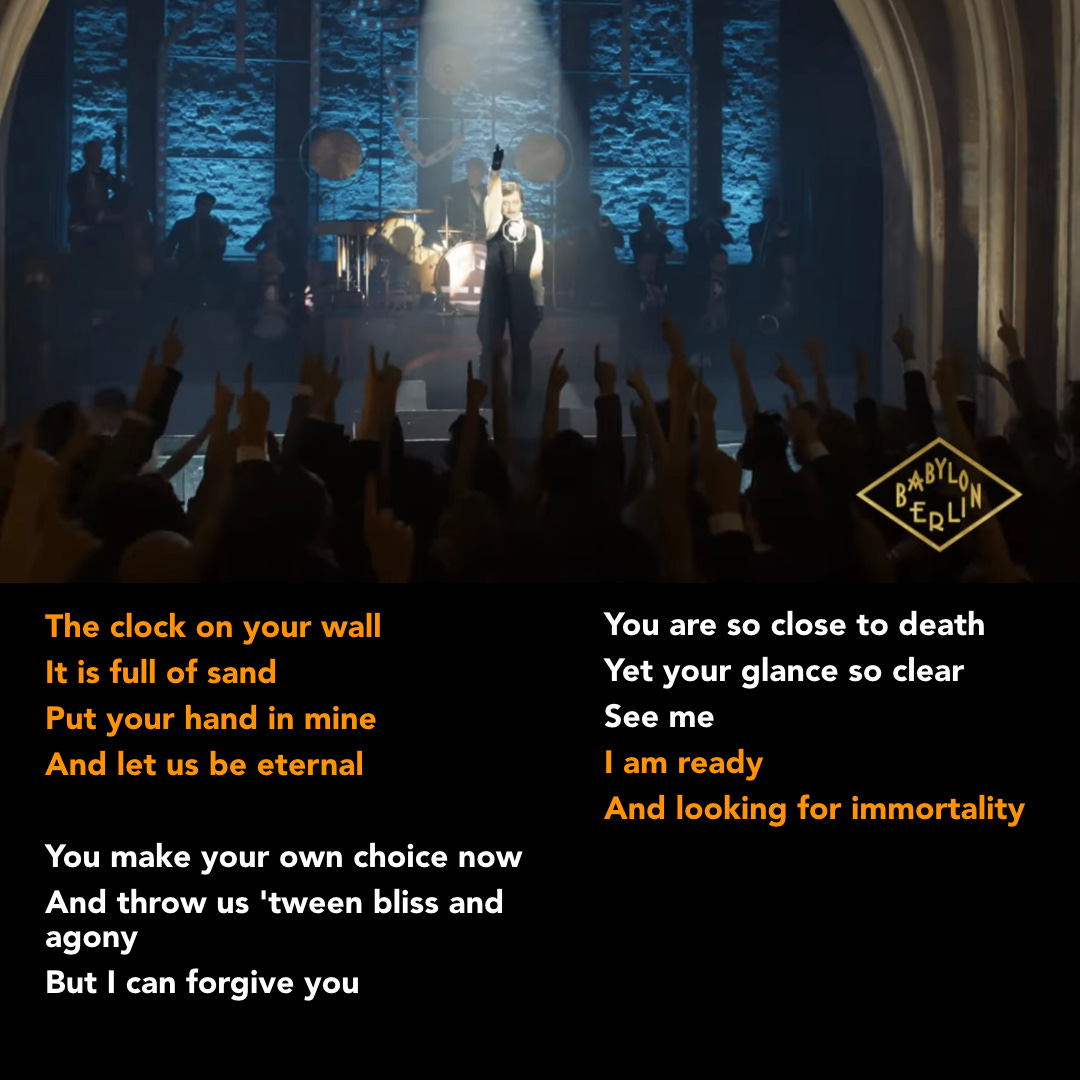After a long hiatus, Poetly is back. I owe you an apology. Much has happened. These are trying times, and while I’ve been turning to art and poetry for solace, I could not always find the right tonality of certainty to share poetry with you. I wanted it to come naturally, to feel right and honest, as opposed to a half-baked reaction whipped up to maintain a semblance of normalcy or even devised sensitivity. Do bear with me. I do not know with what frequency and in what form Poetly will exist again, but for today, I felt the urge to share with you this dazzling piece of art, and my thoughts with it.
Also, do write in if you have any suggestions, thoughts, I would love to hear from you!
Zu Asche Zu Staub
or
Zu Asche Zu Staub - a montage of shots from the series, & without english subs
A figure in a suit, a hat, and a moustache quietly enters the darkness of the stage accompanied by intoxicating drums revving up with heady piano. The audience, expectant, electric, breaks out in applause as the spotlight falls on a woman cross-dressed as the male singing sensation Nikoros in that monument of rhythm and fearless release - the Moka Efti Club in Berlin of the 1920s. She looks out at the crowd gone insane, and raises her black gloved hands in military salute to her hat barely moving her lips as she murmurs into the mike - ‘to ashes, to dust…” The audience knows every word, every stylised step, and rises, as one, in an explosion of limbs, drumrolls and pipes.
Arguably, the song of the year in Germany’s television and cinamtic landscape, “Zu Asche Zu Staub” is the signature number that defined the breathless energy of Germany in the roaring 20s as portrayed in the series Babylon Berlin. Dealing with death and the familiar theme of reaching for immortality, the song embodies the spirit of the “glory years” of the Weimar Republic, where an experiment of democracy after the first World War lasted for a short time before leading to the ascent of National Socialism. Fascists don’t just drop from the sky, they come from real people, and this series examines the various forces that were at play in the lead up to totalitarianism. It doesn’t glorify the period, but manages to capture the schizoid mixture of a world falling apart but also being held together with the thin conviction of political unity and revolution. In fact, there are many revolutions that simmer simultaneously - the economic optimism of the market, the woman finding voice in a world of entitled men, the traditionalists, the communists, the fascists and of course, the pro-democrats. Add to this the extreme anti-realism that defined German expressionism.
Babylon Berlin captures the fumes of this simmering cauldron of culture and imagination with gay abandon, panache and creative detail. This series was a discovery for me. I listen to this song every morning obsessively. It represents a kind of suspension of anxiety about fatalism, and an important reassertion of comradeship - even as the world falls apart around you, even as the future seems uncertain, and the present, hollow, find that seed of deep sensation, surrender to that ephemeral vision of a miracle you do not fully understand -
“Put your hand in mine
And let us be eternal”







I just read and enjoyed this very nice article from you. Very interesting!
Would you also share your interpretation from this song? I am still struggling with finding the meanings!
Thank you!